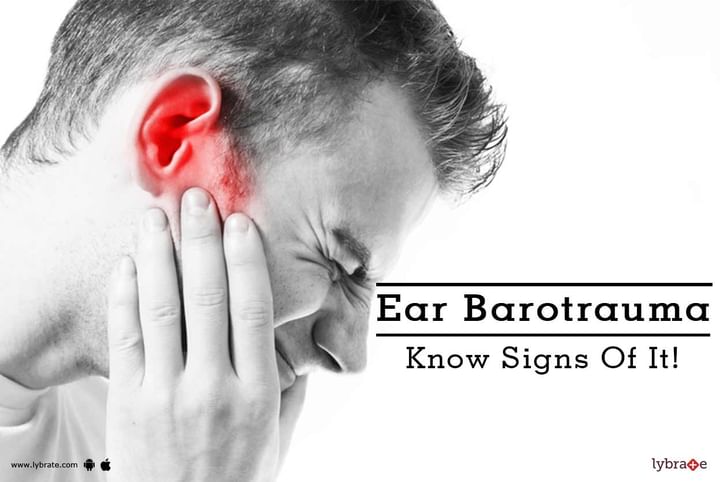Ear Barotrauma - Know Signs Of It!
When you travel in an airplane or just come out of the swimming pool, your ears may sometimes block up and even be painful. This is what is known ear barotrauma and is caused by pressure differences inside and outside the ear drum. Severe cases may cause damage to the ear and impede your hearing.
Symptoms of ear barotrauma
Ear barotrauma usually occurs when the Eustachian tube is blocked due to differences in air pressure. The Eustachian tube is a long narrow tube that runs from the middle of your ear to the pharynx or the back of the throat and is thus very important in relevance to the ear, nose and throat. Thus ear barotrauma can also translate to pain in the ear and throat as well.
Some of the symptoms are:
1. Discomfort in the ear, or aggravated pain in extreme cases
2. Dizziness
3. The ears being blocked or full, in severe cases may feel like being underwater
4. Temporary hearing loss
5. Nose bleeding in severe cases
6. Health care providers may see an inward caving or outward bulging in the ear drum. In severe cases, the ear drum may look bruised as well.
7. Some severe cases may even exhibit signs typical of an ear infection along with some of the other symptoms mentioned above.
Precautions and self treatment
There are certain steps you can take to either prevent barotrauma or reduce the symptoms. These are:
Yawning or gulping - This is very helpful when air pressure differences are caused in cases of travelling by aircraft.
1. Inhale slowly and then exhale while your mouth is closed and you are holding your nostrils closed by fingers - This will help increase the pressure within the tube to try and open it forcefully.
2. Sucking on candy - This is another way to prevent barotraumas as you are constantly swallowing and keeping your Eustachian tube from being blocked in the first place.
3. Keep a few Chewing gums handy - Chewing gums also has similar effects on your ears as it forces the Eustachian tube to remain open despite pressure differences.
4. After diving or swimming, come out of the water slowly - Scuba divers and deep swimmers need to come up slowly to ensure that the Eustachian tube is given enough time to acclimatize and slowly come back to normal.
Usually, ear barotrauma goes away automatically after sometime and no medications are required. However, if symptoms still persist, it is best to go to a relevant doctor or a health care provider for pain relief and long term solutions.


+1.svg)
